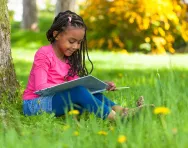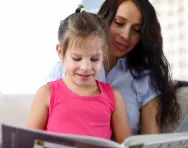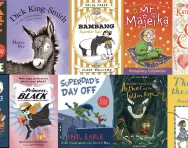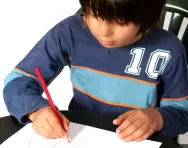Important update from TheSchoolRun
For the past 13 years, TheSchoolRun has been run by a small team of mums working from home, dedicated to providing quality educational resources to primary school parents. Unfortunately, rising supplier costs and falling revenue have made it impossible for us to continue operating, and we’ve had to make the difficult decision to close. The good news: We’ve arranged for another educational provider to take over many of our resources. These will be hosted on a new portal, where the content will be updated and expanded to support your child’s learning.
What this means for subscribers:
- Your subscription is still active, and for now, you can keep using the website as normal — just log in with your usual details to access all our articles and resources*.
- In a few months, all resources will move to the new portal. You’ll continue to have access there until your subscription ends. We’ll send you full details nearer the time.
- As a thank you for your support, we’ll also be sending you 16 primary school eBooks (worth £108.84) to download and keep.
A few changes to be aware of:
- The Learning Journey weekly email has ended, but your child’s plan will still be updated on your dashboard each Monday. Just log in to see the recommended worksheets.
- The 11+ weekly emails have now ended. We sent you all the remaining emails in the series at the end of March — please check your inbox (and spam folder) if you haven’t seen them. You can also follow the full programme here: 11+ Learning Journey.
If you have any questions, please contact us at [email protected]. Thank you for being part of our journey it’s been a privilege to support your family’s learning.
*If you need to reset your password, it will still work as usual. Please check your spam folder if the reset email doesn’t appear in your inbox.
60 reading challenges for primary school kids
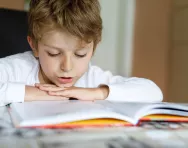
Keeping your child engaged in reading isn’t always easy. Some are voracious readers and are constantly looking for the next book to devour; some find it hard to be enthusiastic about reading and need some persuasion.
Whichever category your child falls into, reading challenges can be a great way to inspire them to read.
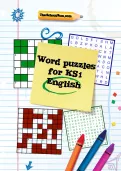
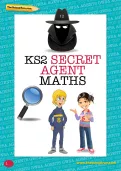
Claim four puzzle packs!
- Word Puzzle Packs
- Numeracy Puzzle Packs
- Challenging and exciting | Boost key skills
Many of these can be done with books that are already on your bookshelf. Most libraries also allow you to borrow children’s e-books through apps like BorrowBox and Libby (search for your local library through your local authority’s website), or you could order books online.
We’ve grouped these challenges by Key Stage, but you can dip in and out of other Key Stages according to your child’s reading level.
Reading challenges for EYFS kids
As your child is just starting out with reading, you’ll need to support them with these challenges.
1. Share a book outside.
2. Share a book about your favourite TV character, such as Peppa Pig, Thomas and Friends, Fireman Sam or Paw Patrol.
3. Share a book of poetry (or find poems online to read together).
4. Make a den to share a book in.
5. Find a picture book with no words and make up a story to go with the pictures.
6. Share a rhyming book.
7. Choose a book you can try to read yourself.
8. Share a book that you loved when you were a baby.
9. Read out loud to your mum, dad, grandma or grandad.
10. Share a book whose cover is your favourite colour.
Reading challenges for KS1 kids
Children of this age are developing confidence with reading, but be prepared to encourage them with these challenges and share books with them.
1. Read to your pet. If you don’t have a pet, read to a soft toy.
2. Read a book in the bath – mind you don’t drop it!
3. Read under the covers with a torch.
4. Read a comic.
5. Read a book about animals.
6. Read for 20 minutes straight (or a time that you think is right for your child's reading level).
7. Listen to an audiobook.
8. Read a bedtime story to your mum or dad, instead of them reading one to you.
9. Read a book from the library (most libraries let you borrow e-books online).
10. Read a book by an author who has the same initials as you.
11. Read a book about your favourite hobby or interest – for example, performing, football, art, rugby, superheroes or space.
12. Read a book set in the past.
13. Read a book by Roald Dahl.
14. Read a book with a one-word title.
15. Read a joke book.
16. Read a book by Enid Blyton.
17. Draw a picture of a character from your favourite book.
18. Read an adventure story.
19. Read a book that your teacher loves.
20. Read a book that teaches you a new skill – for example, a recipe book, or a book of magic tricks.
21. Read a non-fiction book.
22. Read a book by Dr Seuss.
23. Read a book set in a school.
24. Read a book by Michael Rosen.
25. Read a book with more than six chapters.
Reading challenges for KS2 kids
By KS2, most children are becoming more proficient readers. These ideas will help them explore the rich world of books and develop confidence and enthusiasm.
1. Read a book that was written in the year you were born.
2. Read a magazine or newspaper (e-editions count, too).
3. Read for an hour straight (adapt the time according to your child's reading ability).
4. Read to a younger brother or sister, if you have one.
5. Read a book with over 100 pages.
6. Read a book with a friend – take it in turns to read a chapter out loud. You can do this on FaceTime, Zoom, Houseparty or Messenger while schools are closed.
7. Read a biography.
8. Find a word that you don’t know in your reading book and look it up using a dictionary. You could find a notebook and make your own list of new words.
9. Read your best friend’s favourite book.
10. Read a graphic novel such as the Tom Gates or Diary of a Wimpy Kid series.
11. Read a book that your mum or dad loved when they were little.
12. Review a book that you’ve enjoyed – you could do this on a website like Toppsta or Scholastic, or write a review to share with your teacher.
13. Read a Narnia book.
14. Read a mystery story like a Famous Five story.
15. Read a book that’s been made into a film, or watch a film based on a children’s book.
16. Play 20 Questions about book characters: think of a character, and see whether your parents, brother or sister, or friends can guess who it is.
17. Read a book written by an author who has the same first name as you.
18. Read a fantasy book.
19. Read a Harry Potter book (or if you know every Hogwarts story, try a book that other Harry Potter fans love).
20. Read a book written by an author who also writes books for adults.
21. Read a book set in the future.
22. Choose a word from a book and use a thesaurus to find other words that the author could have used.
23. Read a biography or a book based on a true story.
24. Choose and read a book just because you like its cover.
25. Try to read a book every week for a year, and make a list of their titles.
